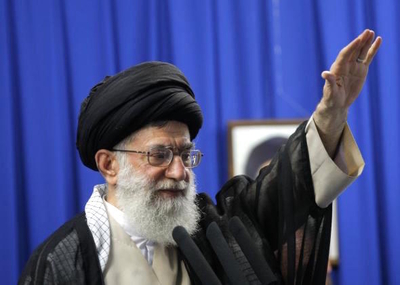Iran and ISIS in Iraq
Wafiq Al-Samarrai
Thursday, 1 Jan, 2015/Asharq Al Awsat
US Senator John McCain described the presence of Iran’s Islamic Revolutionary Guard Corps in Iraq as being a source of concern for the US. In the days following the capture of Mosul by the Islamic State of Iraq and Syria (ISIS), Washington issued a statement saying that the US had no intention to intervene, militarily, in Iraq to assist Baghdad. This, according to some observers, gave the green light for Iranian intervention in the country.
The fall of Mosul was shocking, but what we forget is that there were clear and explicit warnings about this which were roundly ignored by local officials blinded by their own ignorance and belief in false “conspiracies” about ISIS and its foreign backers. However, when the dust settled it became clear that it was the local Sunnis who were backing ISIS at this time, including its takeover of Tikrit. So anybody can sit and spin conspiracy theories, but the reality is that this was not an advancing army comprised solely of foreign fighters; it was local Iraqis who played a major part in what happened.
Following the ISIS advance, Iraqi forces were in a state of shock and required immediate assistance. The Arab and international media were also in a state of shock, not knowing how to frame the developing situation and jumping from one expression of alarm to another. The entire situation was deteriorating amid fears that the ISIS fighters were preparing to advance on the capital Baghdad itself. Despite this, we couldn’t imagine Baghdad falling into the hands of ISIS—the worst case scenario that we could envision was ISIS taking control of some areas outside of the capital, perhaps with the help of sleeper cells already in place, which is certainly something that the central authorities could deal with.
At the time, we also heard statements highlighting the importance of keeping Iraq’s military forces in Baghdad as a temporary precaution. While we saw Shi’ite religious authorities issuing a public call for volunteers to help fight ISIS, which resulted in a very positive response from Iraq’s Shi’ite youth. As a result of this, the Iraqi government found itself with militia forces at its disposal, in addition to its regular military.
But let us now take a look at Iran’s role in all this. It would not have been possible to stop the ISIS advance at this time were it not for Iranian assistance. The Kurdistan region quickly received shipments of arms from Tehran, as well as Iranian military advisers visiting the region to help train the troops. In Baghdad, we saw hundreds of Iranian military advisers appear on the scene, and we began to see them being deployed around Baghdad, as well as in Diyala and elsewhere. It was this deployment that helped to stem the tide of ISIS and change the equation on the ground. Iran has also carried out airstrikes on ISIS targets in Iraq’s Diyala governorate and Samarra province, at the behest of Iraq’s authorities.
Following all this, ISIS began to retreat to the territory that was more firmly under its control in Iraq, pushing back against Kurdish Peshmerga forces which resulted in a huge loss of morale in Erbil after Kurdish forces had initially secured a number of victories over ISIS. As a result, the US had no choice but to rethink its policy towards ISIS in Iraq, forming a broad anti-ISIS coalition. Although Iran is not formally participating in this military coalition, Iran’s presence on the ground in Iraq is now well-entrenched.
So, the fact is that Iran’s support for Iraq has been more effective than has been generally acknowledged, helping the Iraqis to protect strategic areas and stem the ISIS advance. Although the US-led anti-ISIS alliance has also been influential, it has mostly focused its attention on the areas in western Kurdistan, as well as north of Mosul. Therefore, we must acknowledge Iran’s role, whether we like it or not.



















